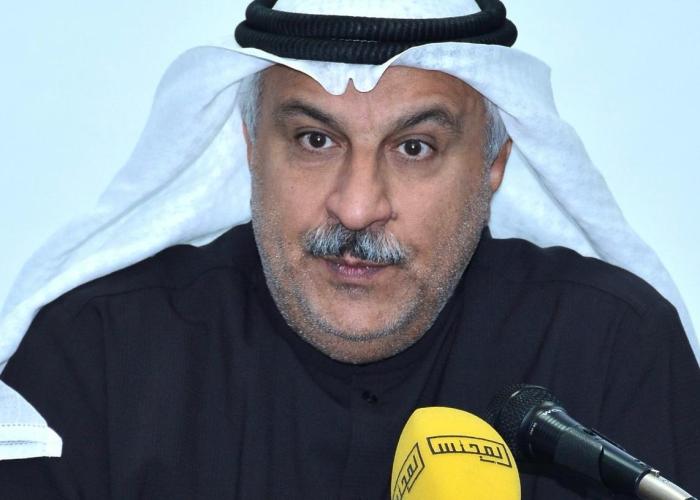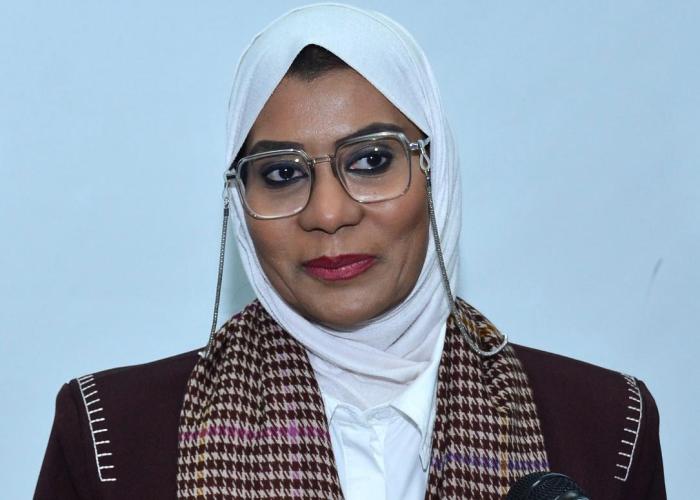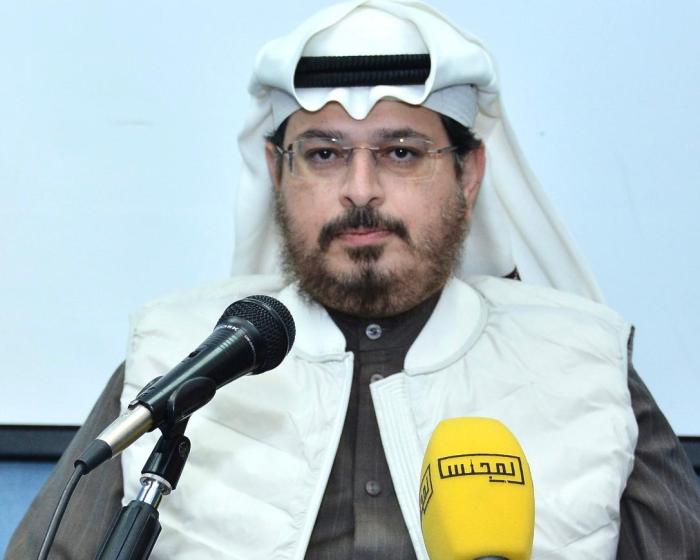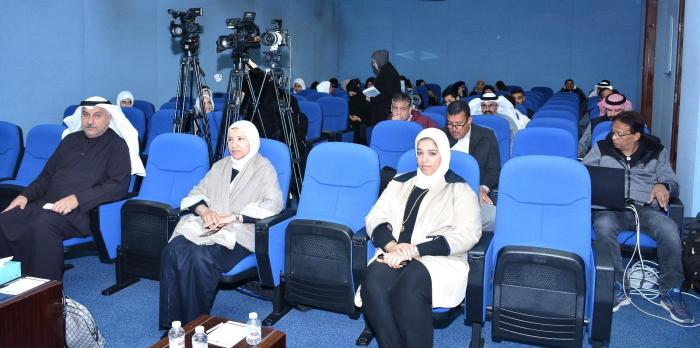
The Gulf and Arabian Peninsula Studies Center at Kuwait University, in cooperation with Kuwait Society for Drug Awareness and Prevention "Ghiras", held a lecture entitled "Mind under Siege: The Impact of Psychological Disorders and Drugs on Youth", in the presence of Acting Director of the Gulf and Arabian Peninsula Studies Center, Prof. Yaqoub Al-Kandari, and a faculty member in the Department of Social Service at the College of Social Sciences, Prof. Maha Mishari Al-Sejari, among an audience of students from the College of Social Sciences. The lecture was presented by the Director of Research and Studies at Kuwait Society for Drug Awareness and Prevention "Ghiras" and the psychological consultant specializing in personality disorders, Dr. Kawthar Al-Yaqout, and was moderated by the Head of the Department of Future and Strategic Studies Preparation at the College of Social Sciences, Dr. Salem Al-Mutawa, held on Monday 16 December 2024 in the Kuwait International Bank Hall at the College of Social Sciences – Shuwaikh Campus. The lecture aimed to highlight the role of society in protecting and supporting youth, while discussing the most important social and emotional challenges that increase the risk of addiction.
Initially, the Director of Research and Studies at Kuwait Society for Drug Awareness and Prevention "Ghiras" and a psychological consultant specializing in personality disorders, Dr. Kawthar Mulla Jumaa Al-Yaqout, explained that choosing this title for the lecture reflects that the mind uses a subliminal skill to influence people using a deadly weapon, which is fear, noting that entering the gate of fear opens the door to delusions, tension and personality disorders for a person, noting that a person who suffers from psychological fragility is a person who is unable to regain his balance, stability and emotions post emotional trauma.
She mentioned that the way to deal with people with psychological and personal disorders is derived from the way of dealing with oneself first, by developing strategies for self-dealing. Based on those strategies, future plans are developed to deal with personal and psychological disorders through self-management, which facilitate dealing with such people by providing psychological consultations, cautioning that the need to please others should not come at the expense of oneself, which means not compelling oneself to follow the social pattern of reconciliation with oneself.
Al-Yaqout stressed the importance of refuting relationships in order for a person to overcome any psychological obstacles he faces by choosing his battles before life imposes random challenges on him to get out of toxic, exhausting and tense relationships as ways to achieve psychological and emotional balance. She explained that another important strategy is training oneself by committing to various skills and activities to develop the ability to adapt and engage in new experiences and avoid psychological breakdown.
In turn, Acting Director of the Gulf and Arabian Peninsula Studies Center, Prof. Yaqoub Al-Kandari explained that the addiction epidemic still poses a major threat to the stability of society in general and the family in particular, as it is considered one of the contemporary global issues that all societies suffer from, affecting national and social security. He pointed out that addiction is an invisible issue that affects every family, and cannot be limited, explaining that despite the efforts dedicated to face the issue of addiction through awareness campaigns, guidance, the supervisory and media role, and the cooperation of all state agencies, it is still a scourge and an epidemic that gnaws at every home and family, which requires everyone to actively play a supervisory role, especially the family, by monitoring children to avoid falling into this problem.
Prof. Al-Kandari praised the role of Kuwait Society for Drug Awareness and Prevention "Ghiras" in holding such lectures and seminars, which in turn raise awareness among our students on how to confront the dangers of addiction, adding, "A study was conducted on three main institution: psychiatric center, the central prison, and Bashayer Al-Khair Society, which is one of the most important leading societies in the field of drugs awareness. The study revealed that there are many variables to be taken into consideration, as well as highlighting the importance of developing special programs that affect 90% of young people, intensifying awareness campaigns, and the cooperation of all different bodies to combat this scourge that primarily affects young people, while fighting negative behaviors such as smoking as it has become a gateway to addiction.
On the sidelines of the lecture, the floor was opened for questions on psychological disorders, how to develop psychological tests to determine if a person suffers from psychological complexes, and other inquires related to the subject of the lecture.


 Colored
Colored Grayscale
Grayscale





